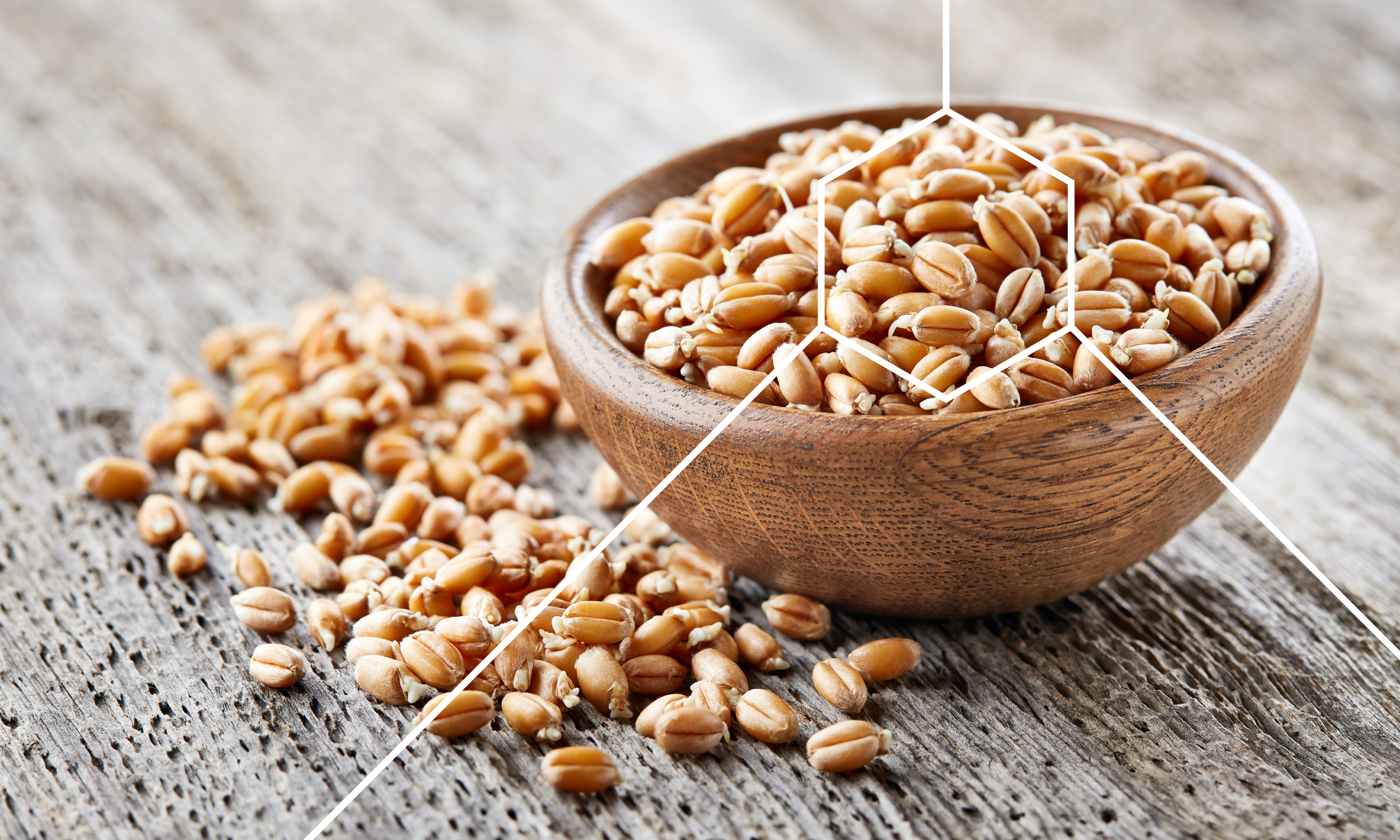
Consuming whole grains is an essential part of a well-balanced diet. Nutrients within these grains have antioxidants that help ward off illness and inflammation. Wheat germ can help boost your immunity and reduce inflammation.
What Is Wheat Germ?
Wheat germ is the most nutritious part of the wheat plant. Found in the berry, it is the plant’s embryo and will spawn a new plant over time. Unfortunately, during the refining process to make flour, the germ is removed. Unless a product says that it contains 100 percent whole grain, it does not include the germ.
There are many health benefits of wheat germ consumption. It can be added to food or taken as a daily supplement to receive its nutritious effects. You will gain the benefits of these vitamins and minerals when you consume wheat germ:
- Protein
- Fiber
- Magnesium
- Zinc
- Thiamin
- Folate
- Potassium
- Phosphorus
- Vitamin E
Is Wheat Germ Inflammatory?
Your body uses inflammation to protect itself against injury, illness, and infection. When triggered, your body produces an increased number of white blood cells and cytokines to ward off disease. Pain, redness, heat, and swelling are common signs of acute inflammation. Chronic inflammation occurs internally without visible symptoms and results in illnesses such as:
- Diabetes
- Heart disease
- Fatty liver disease
- Cancer
Wheat germ contains many essential vitamins and minerals. Among those vitamins is vitamin E. Vitamin E has powerful antioxidants that help protect your cells from damage and alleviate inflammation.
Is Wheat Germ Anti-Inflammatory?
If you are looking for foods that fight inflammation, look no further than wheat germ. Studies have shown that wheat germ decreases the substances found in your cells that cause inflammation. You can add wheat germ to your food to receive its anti-inflammatory benefits or take a wheat germ extract supplement.
Is Wheat Germ Good For Your Joints?
The anti-inflammatory properties in wheat germ may help to reduce joint pain caused by arthritis. The vitamins and minerals found in wheat germ promote strong bones and healthy joints. While there are many foods that cause inflammation of joints, wheat germ alleviates it. If you suffer from arthritis pain and inflammation, you should consider adding wheat germ to your diet.
Does Wheat Germ Help IBS?
Another benefit of consuming wheat germ is that it helps promote a healthy stomach. As an excellent source of fiber, it helps to reduce uncomfortable IBS symptoms. Studies also suggest that wheat germ helps prevent stomach cancer. Consuming whole wheat, including the germ, will help keep your digestive tract working its best.
Which Foods Cause The Most Inflammation?
If you suffer from inflammation, the first thing you should do is reduce or eliminate inflammatory foods. Replacing inflammation-causing foods with healthy whole grains will reduce your discomfort. These are the foods to steer clear of if you want to rid yourself of inflammation:
Sugar and high fructose corn syrup
Eating a lot of sugar and high fructose corn syrup is harmful to your body in many ways. It can lead to inflammation which results in obesity, insulin resistance, and diabetes. Foods to avoid are fruit juices and sugary sodas, candy, cookies, and ice cream.
Artificial trans fats and vegetable oil
Processed and packaged foods with trans fats are also responsible for causing inflammation. Foods like fast food cause damage to your cells and arteries. The consumption of vegetable oils found in most processed foods also leads to inflammation.
Refined carbohydrates
Similar to the effects of sugars, refined carbs lead to obesity, insulin resistance, and diabetes. You should decrease your intake of white bread and white pasta and replace them with healthy whole grains.
Alcohol
Drinking large amounts of alcohol is bad for your health for many reasons. Inflammation is just one other negative side effect of drinking excessive amounts of alcohol.
Processed meat
It would be best to avoid meats such as hot dogs and sausages that are processed, as they are linked to increased inflammation. Lean meats like chicken and turkey are a healthier option. You can use wheat germ to coat your lean mean to increase their nutritional value and add anti-inflammatory properties.
What Are The Side Effects Of Wheat Germ Oil?
It has been suggested that wheat germ oil has many benefits, including:
- Lowering cholesterol
- Protecting skin against aging
- Regulating blood pressure
- Assisting brain function
- Aiding in healthy digestion
But there are some side effects of wheat germ oil, of which you should be wary. It is high in triglycerides which can have adverse effects on those people that have heart disease. Some people also experience diarrhea, nausea, gas, and dizziness.
If you are allergic to wheat, you should not eat the germ. Those that are gluten intolerant or have celiac disease also should avoid or limit their intake of wheat germ until they see how it will affect them.
Supplements May Help
Wheat germ looks similar to breadcrumbs and has a nutty taste. It can be sprinkled on foods, blended in smoothies, or added to the batter before baking. If you want to reap the many benefits of wheat germ consumption, supplements are an easy way to do so.
spermidineLIFE® is a wheat germ extract supplement containing a novel ingredient called spermidine. Much like wheat germ, spermidine combats inflammation within the body from a cellular level. Spermidine helps induce the process of autophagy, which clears your cells of accumulated toxic material. Autophagy hosts a wide range of benefits including the reduction of inflammatory markers across the body, specifically within the brain and immune system.







